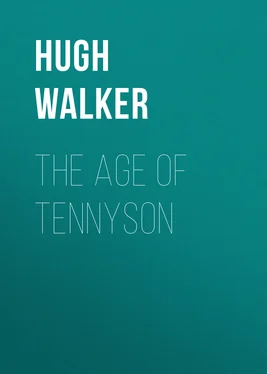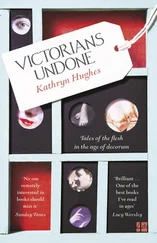Hugh Walker - The Age of Tennyson
Здесь есть возможность читать онлайн «Hugh Walker - The Age of Tennyson» — ознакомительный отрывок электронной книги совершенно бесплатно, а после прочтения отрывка купить полную версию. В некоторых случаях можно слушать аудио, скачать через торрент в формате fb2 и присутствует краткое содержание. Жанр: foreign_antique, Критика, literature_19, на английском языке. Описание произведения, (предисловие) а так же отзывы посетителей доступны на портале библиотеки ЛибКат.
- Название:The Age of Tennyson
- Автор:
- Жанр:
- Год:неизвестен
- ISBN:нет данных
- Рейтинг книги:5 / 5. Голосов: 1
-
Избранное:Добавить в избранное
- Отзывы:
-
Ваша оценка:
- 100
- 1
- 2
- 3
- 4
- 5
The Age of Tennyson: краткое содержание, описание и аннотация
Предлагаем к чтению аннотацию, описание, краткое содержание или предисловие (зависит от того, что написал сам автор книги «The Age of Tennyson»). Если вы не нашли необходимую информацию о книге — напишите в комментариях, мы постараемся отыскать её.
The Age of Tennyson — читать онлайн ознакомительный отрывок
Ниже представлен текст книги, разбитый по страницам. Система сохранения места последней прочитанной страницы, позволяет с удобством читать онлайн бесплатно книгу «The Age of Tennyson», без необходимости каждый раз заново искать на чём Вы остановились. Поставьте закладку, и сможете в любой момент перейти на страницу, на которой закончили чтение.
Интервал:
Закладка:
Carlyle had an infinite respect for facts, and as far as he could by industry and care, he assured himself that all he wrote as history was exactly true. It is of small moment that, like all the historians who have ever lived or ever will live, he has been proved to have made mistakes. But it is well to notice that, much as he revered facts, no one is farther removed than he from the school of Dryasdust. Few were so bold in making selection of their facts. The artistic principle always underlying his work saved him from the mistake into which so many recent historians seem prone to fall, the mistake of attempting to tell everything. To Carlyle, the fact must be illuminative, or he cast it aside. Moreover, while he denounced theorists, few bolder theorists than himself have ever written. Behind almost every sentence of his French Revolution there lies a theory, of character or motive, if not of cause and effect. The difference between him and the theorists he railed at was really that he presented poetically what, they presented logically. He was aware of the limited truth attainable by their method; he was not perhaps fully aware of the dangers of his own. We see this imaginative element in the great part which character plays in the development of the French Revolution as Carlyle conceived it. It is in men, not in political machinery, that we must seek the clue to it. Hence the prominence, perhaps exaggerated, given to Mirabeau. Carlyle’s facts are never left bare facts. He reverences them, not so much in themselves, as for the insight they give into the souls of men. This is the key-note of Carlyle’s histories. They are essentially imaginative; and the writer spends his strength less in a narrative of events than in delineation of characters, and in the tracing of moral forces.
Carlyle’s Cromwell is, more than either of the other histories, an illustration of his own doctrine of heroes, and less than either of the others is it a history of a nation as well as of a man. Cromwell to a great extent speaks for himself, and Carlyle expounds and comments on his uncouth and sometimes obsolete manner of expression. The commentary is free and even ample, yet there is less of Carlyle himself in this than in any other of his works. The great features of it are its delineation of the man Cromwell and the proof it presents of Carlyle’s skill in the use of documents. Carlyle has not converted everybody to his own view of Cromwell, but he has at least coloured the opinion of everybody who has since studied the period.
If Cromwell is narrower in its scope than the French Revolution , Frederick the Great is even wider. The Revolution expanded into a European movement, but within the limits Carlyle set to himself it was essentially French. Frederick was the centre of a movement which Carlyle found could only be treated as a European one. He was led by the relations, alliances and wars of his hero, to deal at greater or less length with all the principal countries of Europe, and his book, instead of being merely the history of a man, became the history of one of the most momentous series of events of the eighteenth century. In this respect therefore the history of Frederick is his most ambitious historical work; and either to it or to the French Revolution must be adjudged the palm of excellence in its class. Various arguments might be adduced on both sides, and it would be rash to pronounce definitely. For the earlier work it might be pleaded that it is clearly the more perfect in artistic conception. It is also true that, interesting as is the Seven Years’ War, and interesting as, in Carlyle’s hands, the growth of the Prussian Monarchy becomes, there is nothing in the subject-matter of Frederick quite as enthralling as the volcanic scenes of the French Revolution . It may also be pleaded that passages of eloquent writing are more frequent, and individual passages probably greater in the latter. The art in it moreover is purer, less intermixed with the grotesque, and with what can only be set down to Carlyle’s individual eccentricities. On the other hand, Frederick is even more forcible than the French Revolution . Carlyle gathered power as years went on, and he never expended it more lavishly than on this latest and most ambitious of his works. Nowhere, except perhaps in Sartor , are all his peculiarities more conspicuous; nowhere is his gospel preached with more uncompromising energy; nowhere is his strange style more unrestrained and less amenable to the ordinary laws of English composition. For these reasons, combined with the wide range of the work, which tasked his power of construction as it had never been tasked before, Frederick the Great will probably always win the suffrages of a large proportion of Carlylean devotees. For the same reasons, those who, acknowledging Carlyle’s original genius and admiring his power, are only half reconciled to his sometimes wanton eccentricities, will doubtless continue to prefer the more regular French Revolution .
Regarding the purely historical essays as minor examples of the kind of works just discussed, Carlyle’s remaining writings may be divided into two classes. These, in the order of their importance in his own eyes, and probably to the world, are, (1) works dealing with or bearing directly upon contemporary social and political problems; and (2) literary essays, including under the latter head the translations and the two biographies of Schiller and Sterling.
Under the first class rank such works as Chartism , Past and Present and Latter-day Pamphlets . Under it too might be fairly brought some of the essays, such, for example, as the essay on the Corn Law Rhymes , which, though it deals primarily with a literary subject, was written because that subject opened immediately into a social one. But indeed all Carlyle’s works are closely cognate to this section; for if he was not directly treating of such themes, his thoughts were never far away from them. Still, there is a difference between dealing directly with a subject and illustrating it by a borrowed light. In Carlyle’s case the latter was the preferable method, and his wisest teaching on matters of immediate practical moment is not contained in the class of works here considered. The reason is that in discussing such questions he usually became violent and one-sided. Carlyle, as much as any man who ever lived, had ‘the defects of his qualities.’ We see in his own life how force and directness, his greatest qualities both literary and personal, become on occasion vices instead of virtues. He recognised the fact himself, and once humorously warned his own people, whom he had alarmed by his outcries, that they ought to know him too well to believe that he was being killed merely because he cried murder. But this habit of crying murder, trifling perhaps in itself, had no little influence for evil on his own life and on the life of her who was most closely associated with him. Just the same fault may be observed in all his works to some degree, but especially in the section of them now under discussion. Carlyle habitually saw through a magnifying glass. As he made an outcry if his own finger ached, so he did in the case of the evils of his own time. The ‘something in the state of Denmark’ he could contemplate with comparative equanimity, and the lesson he drew from that state was apt to be more just because more temperate than that which he drew directly from the present time itself. Compare, for instance, the ‘past’ with the ‘present’ in Past and Present . The former is calm, pure, beautiful, and, we feel convinced, true. The latter is lurid, turbid, exaggerated, repellent, only in part true. We cannot accept as true at all the contrast between the one age and the other; only a most enthusiastic disciple can fail to note that a select specimen of the past is pitted against the average, or worse than the average, of the present. But not thus is truth reached, and not thus is conviction carried to the candid mind. Doubtless Carlyle wished to reform, and the way to reform, it may be urged, is rather to point out what needs amendment than to insist upon the advantages of ‘our incomparable civilisation.’ This is true, but justice is the prime requisite as a preliminary to reform. The way to win men’s acquiescence is not to paint Hyperion on the one hand and a satyr on the other. The better way is to point out how a society faulty, troubled, but, it may be, not hopelessly corrupt, may be made in this point and in that a little less faulty, less troubled, less corrupt.
Читать дальшеИнтервал:
Закладка:
Похожие книги на «The Age of Tennyson»
Представляем Вашему вниманию похожие книги на «The Age of Tennyson» списком для выбора. Мы отобрали схожую по названию и смыслу литературу в надежде предоставить читателям больше вариантов отыскать новые, интересные, ещё непрочитанные произведения.
Обсуждение, отзывы о книге «The Age of Tennyson» и просто собственные мнения читателей. Оставьте ваши комментарии, напишите, что Вы думаете о произведении, его смысле или главных героях. Укажите что конкретно понравилось, а что нет, и почему Вы так считаете.












